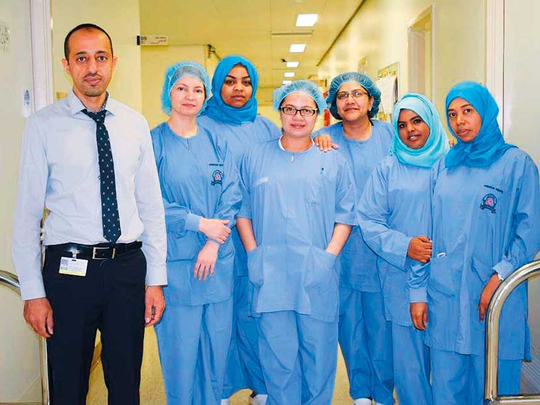
Muscat: For the first time in Oman, the Royal Hospital recently operated on a woman’s prolapsed uterus through endoscopy.
In the four-hour procedure, doctors were able to install a medical device inside the uterus which would support it and offset the need for a hysterectomy in the future.
The operation was conducted by a team from the Royal Hospital headed by Dr. Abdul Rahman Al Farsi, the Consultant of Obstetrics and Gynaecology, in collaboration with anesthesiologists and nursing staff.
“The procedure also has additional benefits like relieving associated back pain, minimising side-effects with the laparoscopy technique compared to the surgical procedures and a shorter recovery period,” Dr. Al Farsi said.
The patient had experienced back and abdomen pain for 12 years due to her condition.
Uterine prolapses occurs when the pelvic floor muscles and ligaments stretch and weaken and no longer provide enough support for the uterus.
As a result, the uterus slips down into or protrudes out of the vagina.
Uterine prolapse can occur in women of any age. But it often affects postmenopausal women who have had one or more vaginal deliveries
In May, a team of surgeons from the Royal Hospital in the capital Muscat made history when they performed the first-of-its-kind trans-oral endoscopic thyroidectomy (TET) in Oman.
The medical team was able to remove the thyroid gland tumours through the mouth from two patients without using the conventional trans-cervical approach that requires surgical intervention through the back of the neck.
The procedure involved making an incision through the mouth, then inserting the instruments through the mouth to reach the diseased thyroid area. Afterwards, the medical cadre approached the thyroid gland and removed the tumour by the endoscope. The technique took only two hours.










